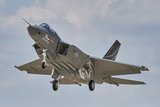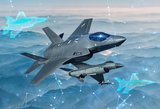US Space Force increases efforts to plug training capabilities gaps
The service has been seeking simulation and emulation solutions capable of reproducing multiple in-orbit threats.
As a part of the Neptune Phoenix award, Northrop Grumman will provide the DIA with intelligence required by the warfighter. (Photo: Northrop Grumman)
Northrop Grumman will provide cloud services to the US Defense Intelligence Agency (DIA) under a US$700 million contract announced on 13 December.
Through the deal Northrop Grumman will provide the DIA with an integrated cloud and sensor solution as part of an effort to provide faster intelligence to the warfighter.
The company said it would evolve the DIA’s collection, processing and analytics tools by ‘leveraging model-based, systems engineering to consolidate and integrate the DIA’s technical capabilities and implementing leading-edge solutions that meet the needs of the rapidly changing intelligence environment’.
Additionally the company would will apply digital engineering to produce operational efficiencies and affordability.
The award, known as Neptune Phoenix, is a nine-year, single-award contract that includes lifecycle management, engineering, design, development, purchasing, prototyping, test and evaluation, deployment, and data analysis for current and future radio frequency and electro optical sensor systems.
Two years ago the company was awarded a task order contract to help the DIA deliver the Transforming All-Source Analysis with Location-Based Object Services (TALOS) programme which was designed to support actionable intelligence with speed and improve decision-making.
The earlier $690 million contract required Northrop Grumman to transform existing databases housing foundational military intelligence into multi-dimensional, flexible and rigorous data environments.

The service has been seeking simulation and emulation solutions capable of reproducing multiple in-orbit threats.

The service has been conducting several acquisition and upgrading efforts involving artificial intelligence and machine learning to improve communication, data analysis and ISR systems.

The Syracuse 4B communications satellite, developed by Airbus and Thales Alenia Space, was launched last year, bolstering secure military satellite communications for the French Armed Forces. Thales has now been selected to provide terminals for vehicles.

The growing importance of space in modern warfare, advancements in satellite technology, and increasing threats from rivals like China and Russia were among the topics of a Eurosatory 2024 panel on military space operations.

AN/ARC-232A is a Starfire radio that provides VHF/UHF communications to airborne platforms and the transceiver is software-programmable, allowing for multiple waveform support as well as optional national electronic counter counter-measure (ECCM) capability.

During the 18-month period of the contract, Lockheed Martin will apply Artificial Intelligence (AI) and Machine Learning (ML) techniques to create surrogate models of aircraft, sensors, electronic warfare and weapons within dynamic and operationally representative environments.